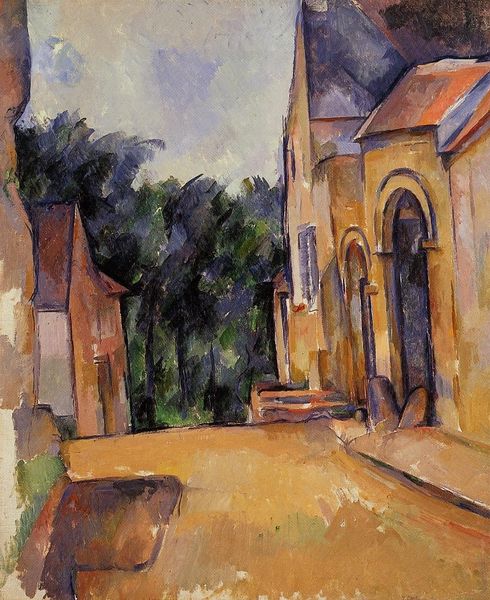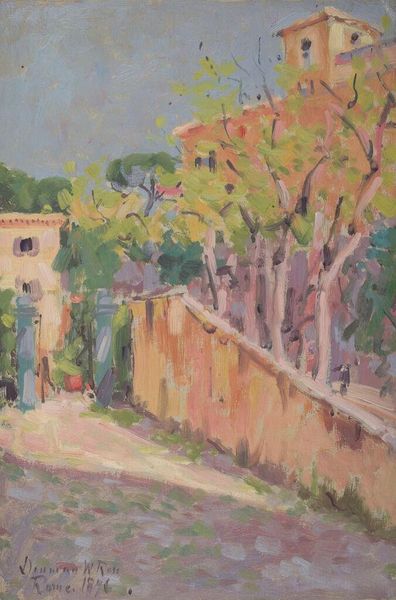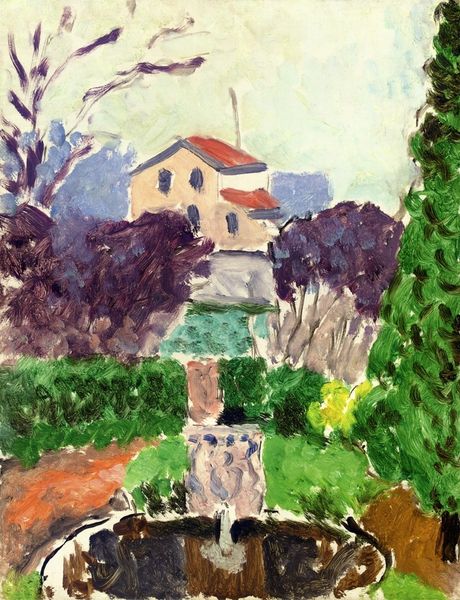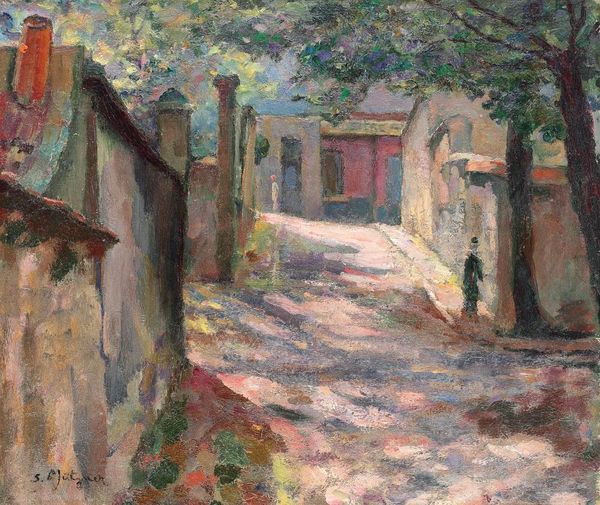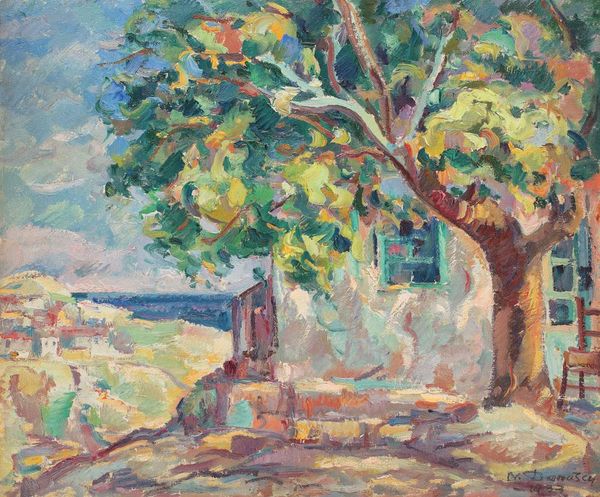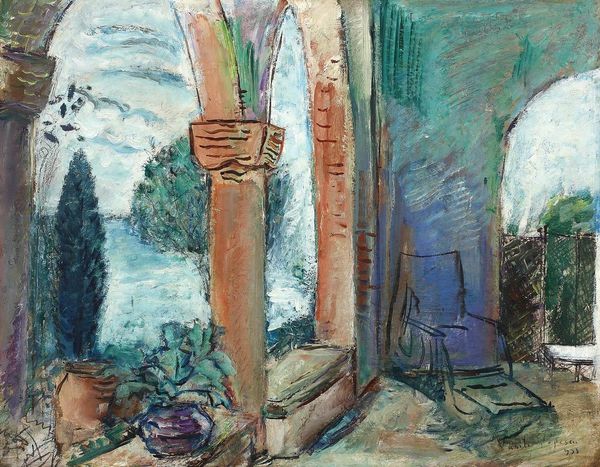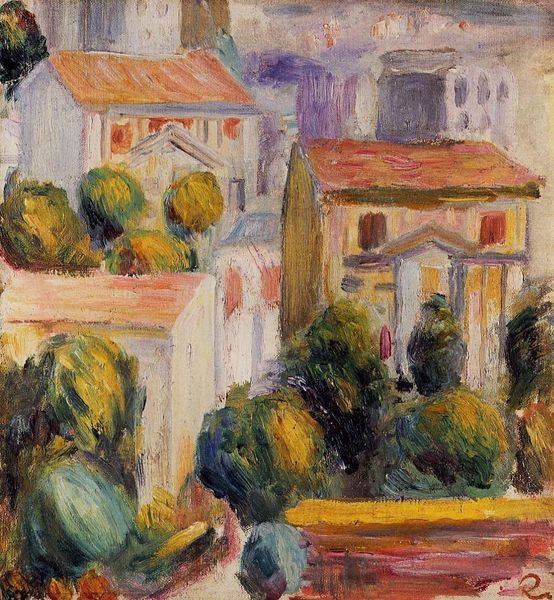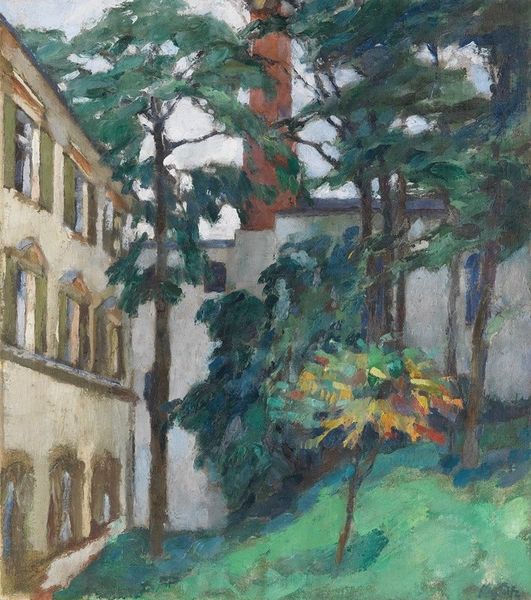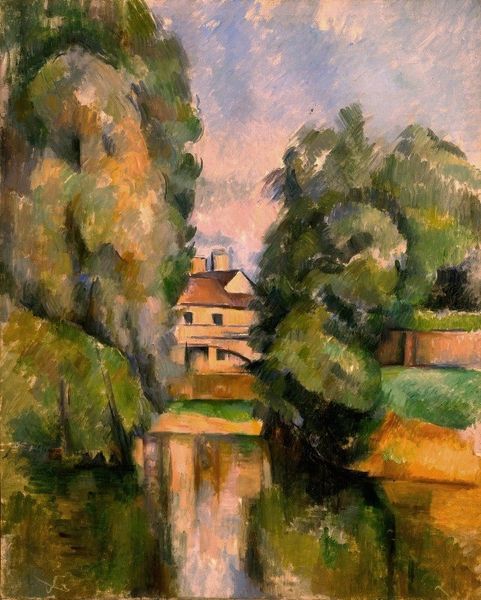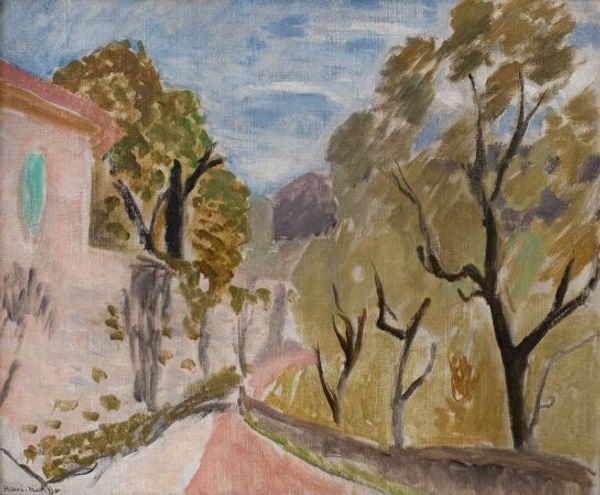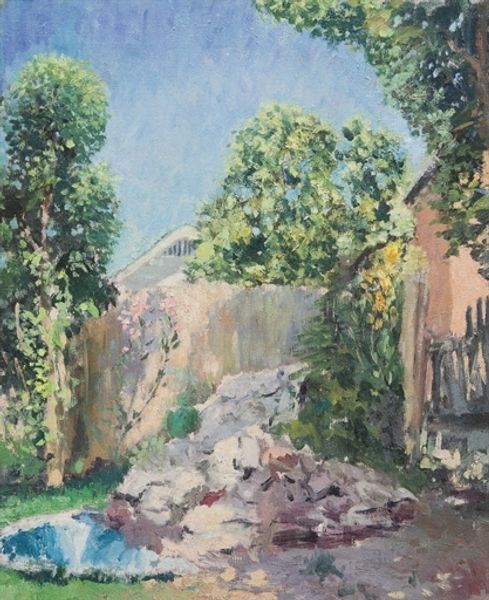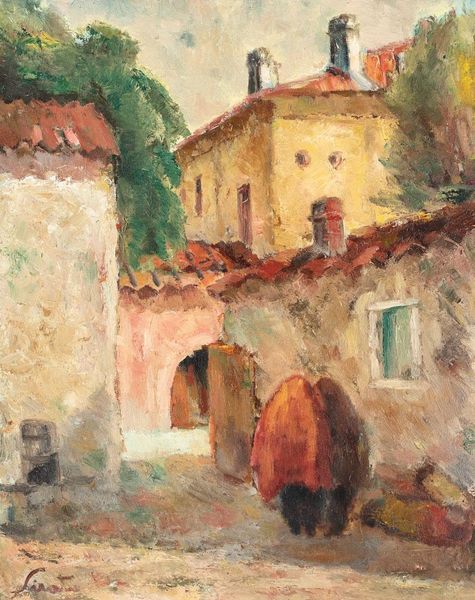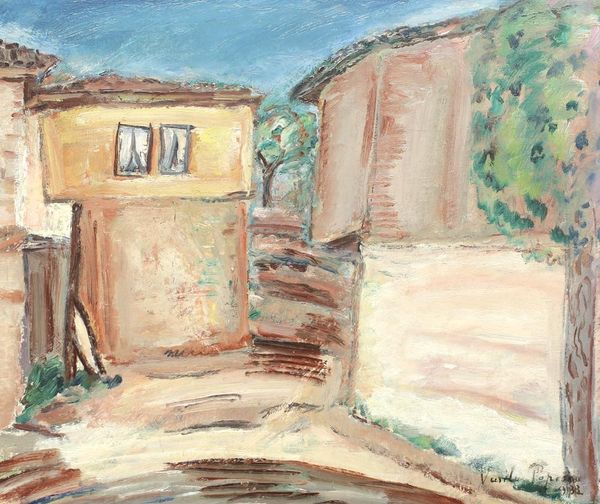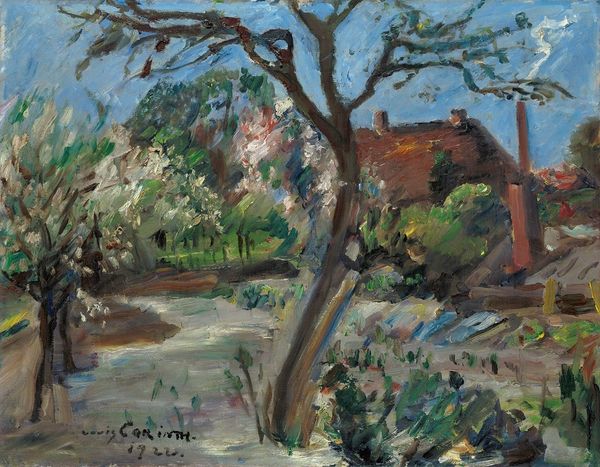
painting, plein-air, oil-paint
#
tree
#
painting
#
plein-air
#
oil-paint
#
landscape
#
oil painting
#
cityscape
Copyright: Theodor Pallady,Fair Use
Editor: So, this is "Cișmeaua de pe strada Spătarului" by Theodor Pallady, an oil painting, presumably plein-air, and though undated, it evokes a serene cityscape. The heavy impasto gives the fountain and surrounding architecture a tangible weight. What stands out to you about it? Curator: What I find compelling is Pallady’s approach to representing this everyday scene. It is less about capturing a picturesque view and more about the materiality of the location itself. Consider the impasto you mentioned: what purpose do you think that serves beyond aesthetic appeal? Editor: Perhaps it's meant to convey the wear and tear on the building, the accumulated layers of time and history etched into the very substance of the city? Curator: Precisely. The way the paint is applied – thickly and gesturally – mimics the rough texture of the building’s façade and the fountain. It’s not just paint on canvas; it’s a representation of material reality, reflecting perhaps, the socio-economic status of this specific area. Could it be that this area, by displaying a public fountain, intended to elevate it to a position of greater status in society? Editor: That's interesting. I hadn't thought about it that way. It shifts my perception from simply seeing a pretty landscape to considering the layers of meaning embedded within the paint itself and the architecture depicted. Curator: And don't forget, the act of painting 'en plein air', places the artist and artwork in a specific relation to that public space. It asks us to question who this space really belongs to, or better, for whom this art exists. Editor: I see your point. By focusing on the material, both of the paint and the scene it depicts, Pallady transforms this seemingly simple painting into a commentary on place, labor, and value. Thank you! Curator: Indeed! Considering the materials and context invites us to critically examine the social and economic realities embedded within seemingly ordinary artworks.
Comments
No comments
Be the first to comment and join the conversation on the ultimate creative platform.
